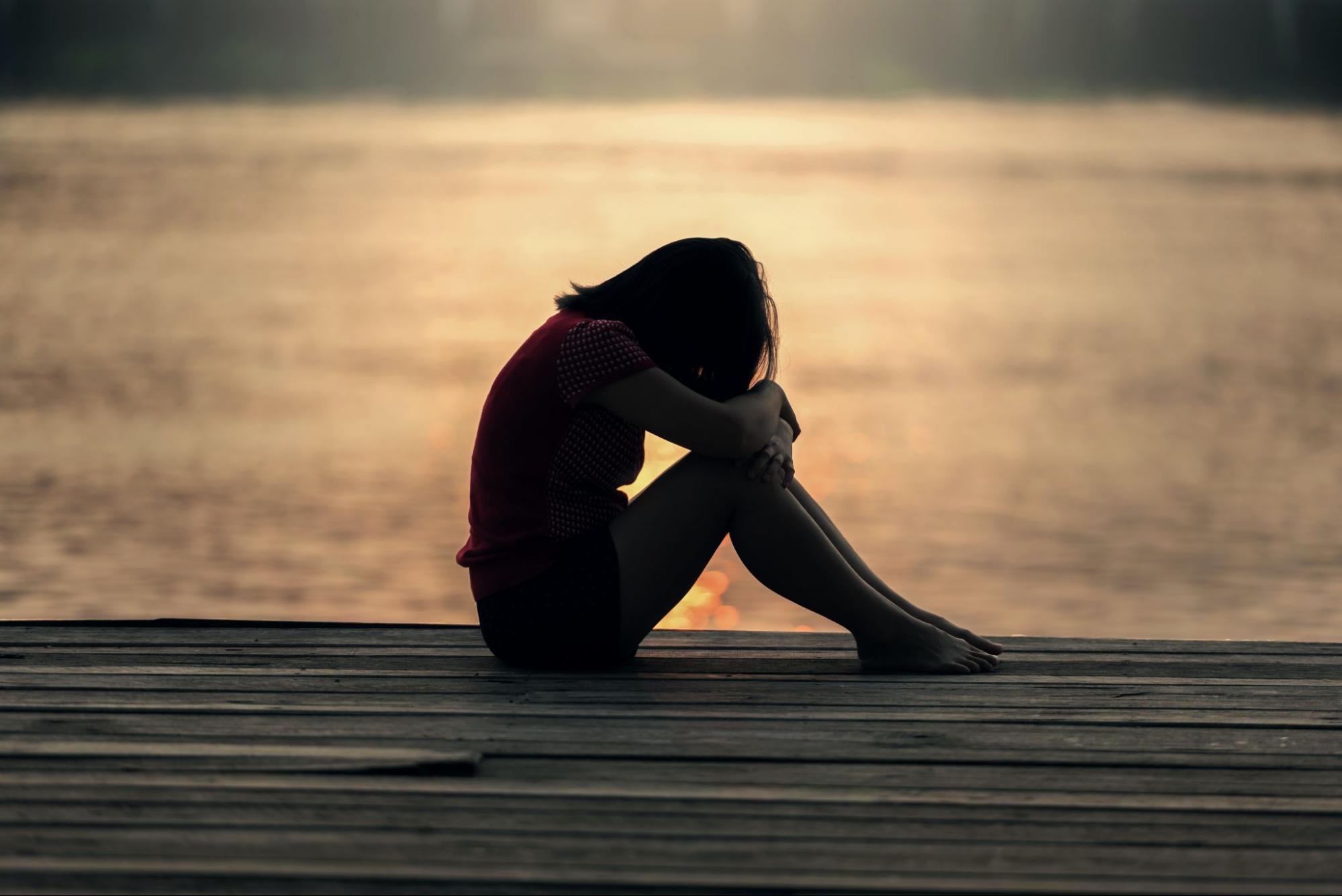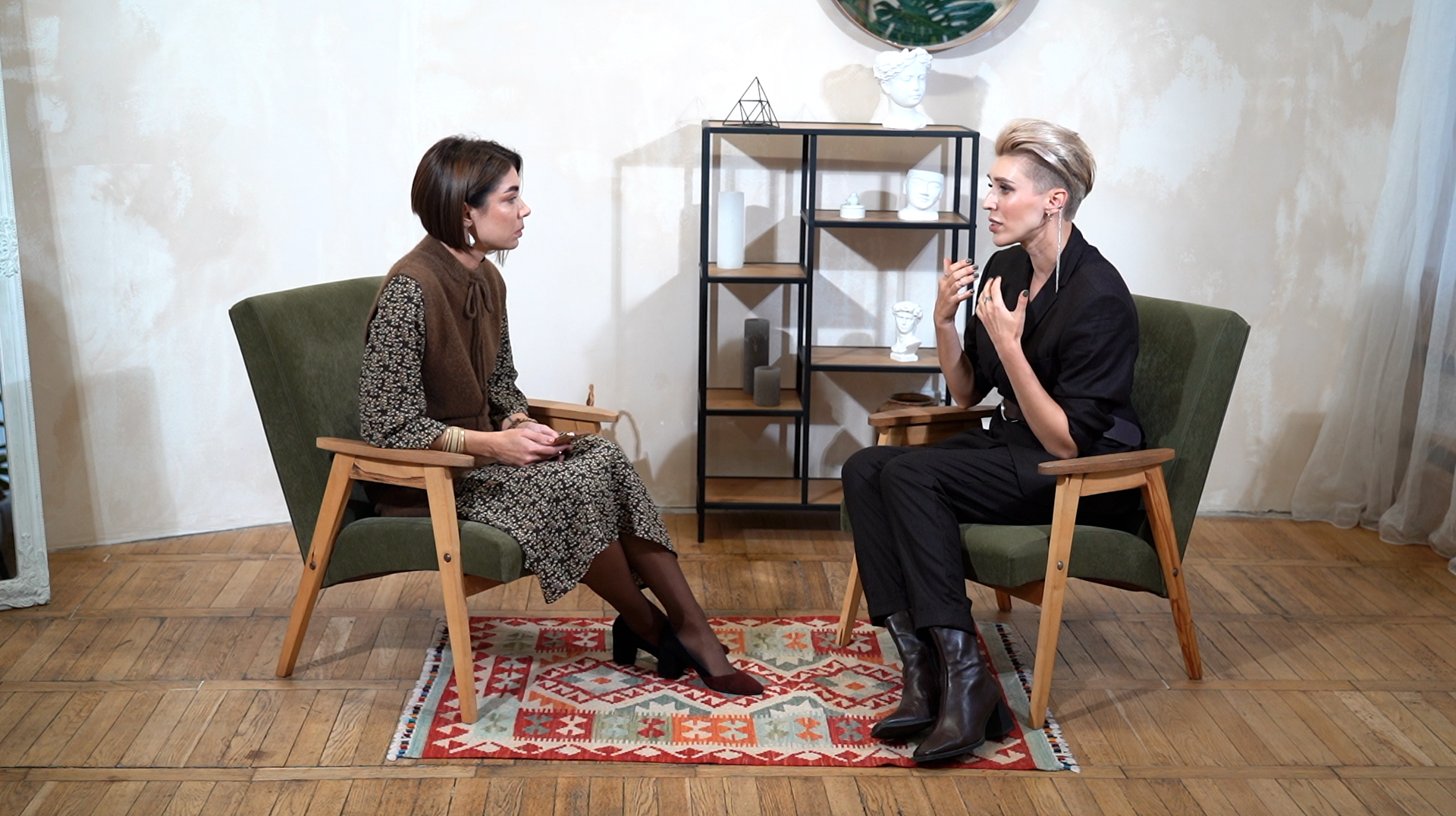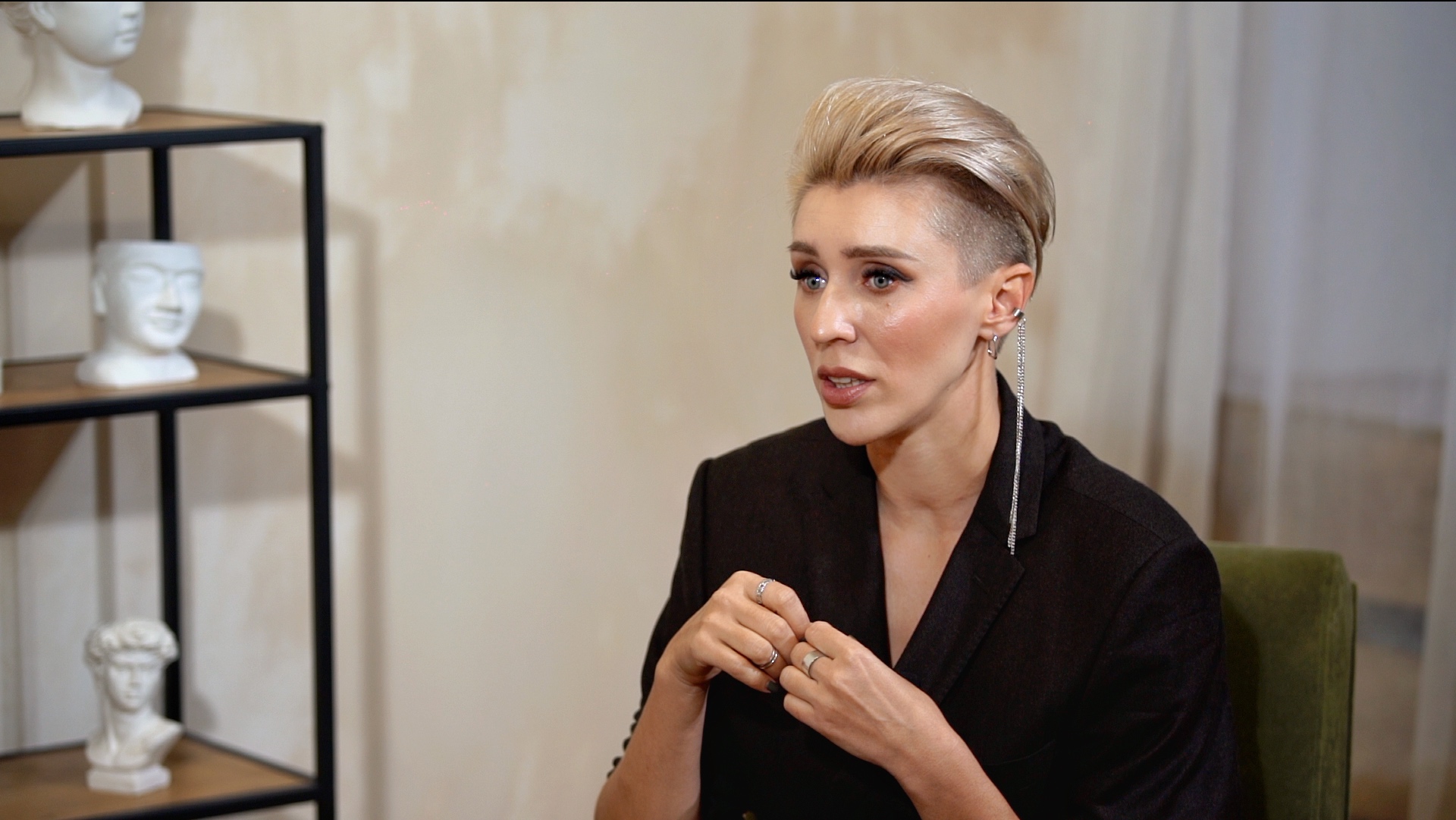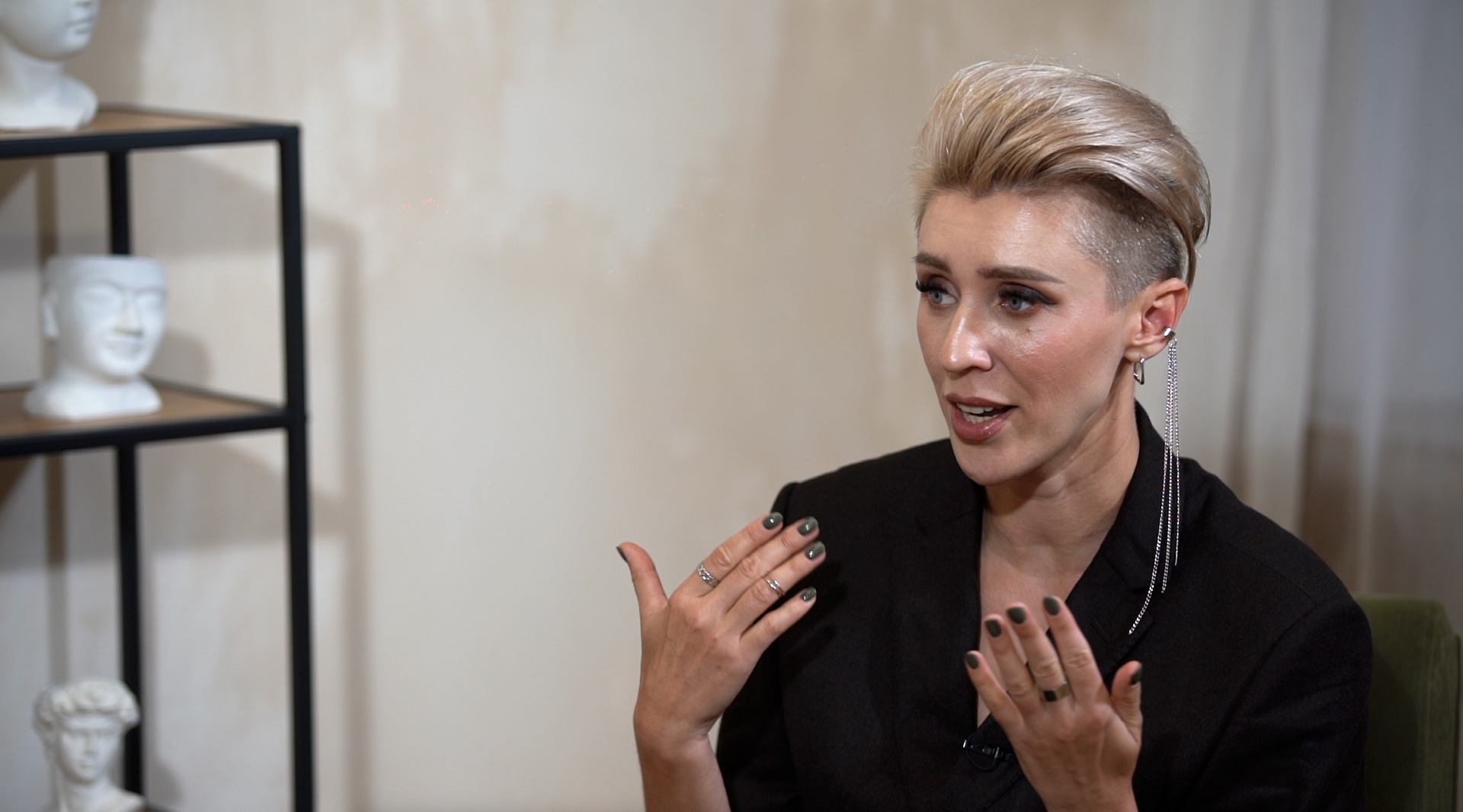
Rubryka launches a series of videos on women's health during the war. We dedicate the first issue to mental health. With the beginning of a full-scale invasion, the frequency of appeals to psychologists with questions related to hostilities increased. There is no accurate statistical data assessing the impact of injuries, stress, and experiences on women's health. So how to determine the effect of rocket explosions in the neighboring house, viewing alarming news 24/7, and losing your home, future, and loved ones?
Each case is individual. While one woman needs to rest and switch her mind to something else, another woman should undergo long-term therapy and treatment to reduce the level of anxiety and psychological trauma.
Positive psychotherapy specialist and consultant Kateryna Dutko shared her therapy experience with women and married couples. In the first Women's Health War issue, we discussed the problems of accepting reality and stress and how to cope with it, as well as the importance of being able to experience emotions here and now.
What is the problem, or "It's great that women seek help"
According to Kateryna Dutko, women more often seek help from psychologists. Therefore, it isn't easy to assess the difference in the responses of the male and female psyche to the same factors based on the experience of one psychologist. In addition, the expert says each case is individual.
"With some people, it's crisis counseling in one meeting. With someone, it's stabilizing the condition, and with others, it's long-term therapy. We rethink the situation and find new solutions and reactions in the latter case. We are all going through a unique experience right now—no one prepared us for it. And it's great that women are seeking help."
Kateryna's main task as a psychologist is to teach the client self-help. After all, people can not always get in touch with a consultant urgently, so today, it's vital for each of us to have a set of exercises that will quickly stabilize and relatively bring a person into order. These are breathing techniques, relaxation, and meditation.
Those stress factors that affected us earlier are now a hundredfold amplified by the war. A person has to face something they are simply unable to influence. Because of this, people lose support and life prospects, and they need to understand in time that they need help to return them. Women more willingly admit this and turn to psychologists and counselors for support.
Although on the other hand, scientists note that, for example, post-traumatic stress disorder after traumatic events (PTSD) develops in 20% of women and only 8% of men. At the same time, everyone has a unique reaction to traumatic events and stress factors.

"I work with different women," says Ms. Kateryna. "Some of them not only didn't leave their jobs but, on the contrary, had career growth." And they ask to help them reduce guilt because of their success. Some women think they don't deserve help because some have it much worse. Someone gains a lot of weight due to stress, and someone loses weight. The body responds to these abnormal changes as best it can. It's okay to feel abnormal. But not for an extended period."
What is the solution?
I need help: what to do?
According to Ms. Kateryna, you can realize that you need help both by physiological changes (feeling bad, sudden weight gain, or, on the contrary, weight loss) and by psychological state and often-returning thoughts.
"Often such people say: 'I feel bad,' 'I can't cope anymore,' 'No one will help me anymore,' 'I don't know what to do, how to live on.' Some work and withdraw, and some, on the contrary, have a lot of contact with others—all these reactions are normal. We allocate the lion's share of time during consultations so that a person understands that everything is fine with them."
Living here and now
Today, war is a unit of measurement. Many live in two dimensions: "before the war" and "after the war." The problem is that these two dimensions do not include the most critical dimension—the dimension of "here and now."
"In this time, people seem to freeze in anticipation of when the war will end, but how much longer can you last? The war will not end tomorrow, and the energy is already at a minimum. My task is to bring a person back to reality, to the 'here and now,' to give them back a sense of control over their life."
According to Ms. Kateryna, mindful living is also crucial. Reduce your "automatic" actions to a minimum. Three factors can significantly ease the well-being of a person under stress: adequate sleep, nutrition, and sufficient physical activity.
"Often people don't meet basic needs because they simply do not allow themselves to live, to enjoy life now," says Kateryna Dutko.
Returning what was lost. What is it like to feel safe again?
You can lose the feeling of safety even due to more minor shocks, and even more so because of the war. When life supports, like home, family, work, and social ties, are being lost, we freeze. One needs mental strength to restore them, which is often not enough. That is why the psychologist advises starting small.
"Make yourself a little oasis—something you can lean on. It could be anything—even reading a book every day. Come up with a ritual. No matter where we are now, and no matter what happens to us, it is simply necessary to regain the feeling of 'I am alive.' For example, at one training for migrants, a woman from Sievierodonetsk [Donetsk region] shared her story. She said that the first thing she did after coming to Poltava was buy a yoga mat."

You can stabilize yourself in different ways. Here everything is individual. These "rituals" must give you a sense of security, control, and home.
Stress: foe or not?
"Feeling stressed is absolutely normal. The body lives and tries to adapt to the conditions that surround us now. At the same time, the amount of stress depends on several factors: the stimulus strength, how stable and protected our body is, and our environment—where we are and who is next to us. The reaction depends on these factors."
Suppose a person takes care of themselves, feels good physically, and has a supportive environment. In that case, the impact of external stimuli on them will be much lower than on people with emotional burnout, for instance. But there's also the concept of chronic stress.
Suppose a one-time exposure to a stimulus mobilizes the body more quickly and helps to adapt to the environment due to the feeling of stress. In that case, the long-term effect and intensity of negative factors can cause the exhaustion of all the body's strengths.
Chronic stress can affect brain activity and the cardiovascular system, cause muscle hypertonicity and destabilize the work of the gastrointestinal tract.
"I would advise our viewers to read Hobfall's theory of the conservation of resources. According to this theory, we lose resources when we use up one. For example, the loss of a home entails the loss of social ties, status, material things, etc. But you can also acquire these resources. For example, if I walk for two hours a day, it will allow me to release blocks in my body, and I will be able to think, plan, and feel better.
Living through emotions. Delayed grief syndrome
"People come to me for consultations who lost a loved one about ten years ago but have not mourned it until now."
According to Ms. Kateryna, unlived, "clogged" grief does not allow emotional release. The psyche, having not experienced the loss, will constantly return a person to the situation or event they avoid.

"Living with grief takes about one year. If you have lost a loved one, you have to go through all the holidays without that person: New Year, Christmas, and birthdays. Not everyone knows how to experience emotions, but you can learn it."
You should consider the importance of living through emotions not only with the loss of loved ones but also with the loss of a home, social status, and forced relocation. Some women are monitored for PTSD. How to understand that you have an unlived trauma?
"First, you avoid talking about the event. Second, you are dominated by negative thoughts and emotions. Third, you observe hyperarousal, sleep disturbances, nightmares, and flashbacks. A person avoids situations that may remind them of a traumatic event."
Surviving a crisis as a couple
Ще одним важливим питанням на сьогодні є проблеми стосунків у родинах. Психологи й адвокати говорять, що за час війни кількість розлучень в Україні зросла фактично вдвічі. Катерина Дутко наголошує, що кожен випадок індивідуальний і варто розуміти, що, маючи бажання, завжди можна знайти шляхи до розуміння один одного.
Another critical issue today is the problem of family relationships. Psychologists and lawyers say that the number of divorces in Ukraine during the war doubled. Kateryna Dutko emphasizes that each case is individual. One should understand if you want to, you can always find ways to understand each other.
"We have become so sensitive to ourselves. Sometimes we even aggressively defend our position: only like this and not the other way. After all, many lack love and a sense of security, and not everyone satisfies their physiological needs. There is no stability. It is unclear what will happen next. Women often say they will not do anything now and wait until their husbands return from the war. Then they will figure it out. But we have to wait until the moment he comes back from the war."
On the other hand, not all couples experience crises; some become even closer. According to Ms. Kateryna, this likely happens because such partners have the same stress reaction. They are open, and they talk to each other. That is why in a problematic situation, they find support in each other.
Sometimes the most important thing to do to heal a wound is to admit it's there. How many women, having, at first glance, insignificant stresses, are already traumatized by the war? And how will it affect us in the future?
Women waiting for their husbands from the front line. Women who lost their homes, who were forced to move abroad, who won't allow themselves to live due to stress. It's all us. Our health—both physical and mental—is in our hands. We cannot control what happens around us, but we must support ourselves just like each other.
The project is carried out with the support of the Independent Regional Publishers of Ukraine Association as part of implementing the grant project The Women in News from WAN-IFRA. The authors' views do not necessarily coincide with the official position of the partners.










